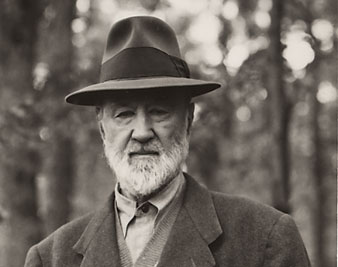by Daniel Hathaway
TODAY’S ALMANAC — CHARLES IVES:

An hour-long documentary by Anne-Kathrin Peitz, The Unanswered Ives: Portrait of a composer, Wall Street giant and pioneer of sound, is available on Medici-TV.
Today at 7:30 pm, the Charles Ives Society is airing a free concert at Mechanics Hall in Worcester, Massachusetts celebrating the 100th anniversary of the publication of his Concord Sonata.
Listen to a performance of Ives’ First Violin Sonata by Stefan Jackiw and Jeremy Denk here, and of his Fourth Sonata by Jinjoo Cho and Shuai Wang here.
And watch a full-length concert of Ives’ hymns, songs, and violin sonatas at the 2014 Ojai Festival, performed by pianist Jeremy Denk, violinist Jennifer Frautschi, and the male vocal ensemble Hudson Shad.
Ives’ orchestral experiments are especially interesting. Click here to watch The Way Things Work, a short lecture by Detroit Symphony Conductor Leonard Slatkin on Ives’ Fourth Symphony, and here to listen to Pierre Boulez lead The Cleveland Orchestra in Three Places in New England in 1970.
And experience one of Ives’ experiments in bitonality: his setting of Psalm 67 in which the upper voices sing in the key of g minor, and the lower in the key of C Major. San Francisco Choral Artists perform at St. Luke’s Church.
Finally, one of Ives’ most amusing pieces is his Variations on ‘America’ for organ, written when he was only 16. Oberlin graduate Joseph Ripka plays it here on the Visser & Associates organ at All Saint’s Episcopal Church in Phoenix. E. Power Biggs is rumored to have once programmed it on a patriotic program at Princeton. The organizers were not amused.



